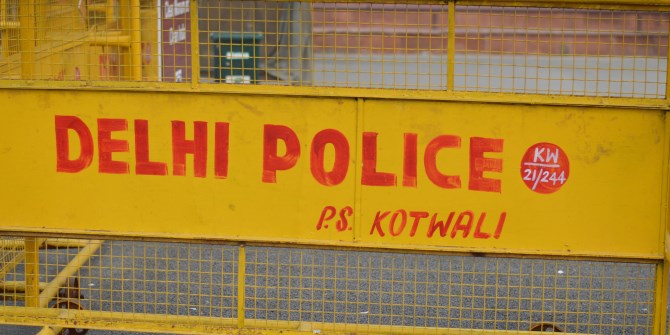When it comes to soft diplomacy tactics, India has traditionally leveraged education and healthcare in its diplomatic outreach with Africa. Sourajit Aiyer (Independent Researcher) argues that even transformative agriculture methods, like Zero Budget Natural Farming can boost India’s soft diplomacy with the African continent, by helping it become self-sufficient in food production through low-cost, sustainable farming whilst improving farm economics for smallholder farmers. Here he takes stock of what makes the farming model so relevant.
India’s historic connection with Africa dates back many years. Indeed, it can be traced back to trade with Ethiopia’s Axumite Empire in the 1st Century, Indian ships traveling to East Africa (as documented in a 60 AD Greek guidebook), and Arab traders connecting India and East Africa in medieval times. A Kenyan sailor is said to have piloted Vasco da Gama’s 1498 maiden voyage to India.
When parts of East and Southern Africa became British colonies in the 19th century, south Indian migrants went to work as indentured labour in their farms. Decades later, Gujarati businessmen migrated to those colonies – many large businesses there are still Indian-owned. Later during the Cold War, several African nations supported India in their participation in the Non-Aligned Movement.
In recent decades, investment and development assistance dominated India’s outreach to Africa. India’s cumulative investment of $30bn makes it one of the largest sources of FDI for Africa, but this money mostly flowed to energy, mining and the telecom sector rather than soft infrastructure. From 2003 to 2017, Africa with $10bn was the second-highest recipient of India’s concessional development credit, led by East and West Africa at $3bn each. While this majorly went into infrastructure, soft areas like agriculture also saw some investment. But this was mainly in farm mechanization and large irrigation projects, which typically benefits large farmers rather than smallholders. This is pertinent as smallholders dominate in these regions (78% and 72% of African and Asian farmland vs. 40% globally). The continent remains a chronic net importer of food, and food security can be a significant challenge a fast-growing and youthful economy like Africa’s.
Given this backdrop, diplomatic overtures that leverage low-cost, sustainable farming designed to make Africa self-sufficient in food production whilst improving farm economics for smallholders is the need of the hour. This is where India’s Zero Budget Natural Farming (ZBNF), a set of practices that replaces chemical pesticides and fertilizers with natural bio-inoculants made from farm and bovine waste, offers a low-cost solution to assist Africa’s food security challenge. Currently, ZBNF is practiced sporadically across Indian states – Andhra Pradesh recently announced a state-wide policy to convert its 6 million farmers and 8 million ha. cropland to ZBNF by 2024.
Low-cost farming
ZBNF focuses on low-cost farming, a fact extremely pertinent for low-income African communities. Over recent years, high investments of chemical inputs have made smallholders chronically debt-laden. Moreover, chemicals have damaged soil and water in farms reducing the farm’s output and incomes. ZBNF can help reverse this. Its natural bio-inoculants are prepared using locally available bovine and farm wastes at relatively low costs. The waste of Indian indigenous bovines consists a large share of beneficial microbes for the soil, and the Indian Zebu cow breed has been adapted to Africa, Brazil and Australia.
Regenerative farming
ZBNF prioritises regenerative farming, a highly relevant aspect of agricultural economics given the impact chemical runoffs have had on a country’s natural capital. At present, 30% of land in India is undergoing degradation or desertification while 65% of Africa’s farmland is affected by degradation. ZBNF tackles this impediment to future cropping. Its natural bio-inoculants revive the soil’s food-web and microbiota, and restores its natural nutrient cycle; in contrast to chemical farming which damages the soil over time. For instance, ZBNF’s initial successes with dry-sowing in a desert-like district of Andhra Pradesh, demonstrated that green-cover could be revived where previously nothing was cultivable. ZBNF therefore could be a useful model to adopt since African farmlands are facing similar sustainability issues.
Reducing chemical residue in food
ZBNF can reduce health problems and medical costs associated with eating food with chemical residue. In an Indian survey of 20,000 samples across food-groups, 19% contained residue. In a Tanzanian study of 189 samples of 11 widely-used foods, 29% had residue. ZBNF uses natural inoculants instead of chemicals, hence the risk from chemical residue reduces. This matters because, there is ample research on the impact of food quality and food chemicals on an infant’s mental development.
Improving productivity
ZBNF also can improve farm productivity, something that is extremely pertinent when the productivity of cropland is reducing. As it is, Africa would be home to half of the incremental population growth globally until 2050. Crop-cutting experiments in Andhra Pradesh’s ZBNF project in 2018 saw the output per acre improve for most major crops. Africa has 60% of global cropland, but produces only 10% of global food. The headroom to grow productivity is immense, and the ZBNF is the ideal means towards that end. Apart from productivity improvements, ZBNF’s multi-cropping models also reduces the income-concentration risk of monocropping.
The current Indian government has accelerated its outreach to Africa. The 2015 India-Africa Forum set out specific targets and saw participation from a record 54 African heads of state. The event announced a further $10bn in concessional credit to Africa over the next five years, apart from $600mn in grants. Further, while addressing Uganda’s Parliament in 2018, Prime Minister Modi said India not only accords priority to Africa but would align its outreach with Africa’s Agenda 2063 – which has a strong focus on agriculture. The African Development Bank’s President also stressed African agriculture must focus on self-sufficiency, a reason why it is committing $24bn to the farming sector. All in all, ZBNF offers a pragmatic model for India’s diplomatic outreach to Africa, to help the continent achieve food self-sufficiency through low-cost, sustainable production whilst improving farm economics for its smallholders.
This article gives the views of the author, and not the position of the South Asia @ LSE blog, nor of the London School of Economics. Please read our comments policy before posting. Featured Photo: Crop soil. Credit: Free-Photos, Pixabay.







